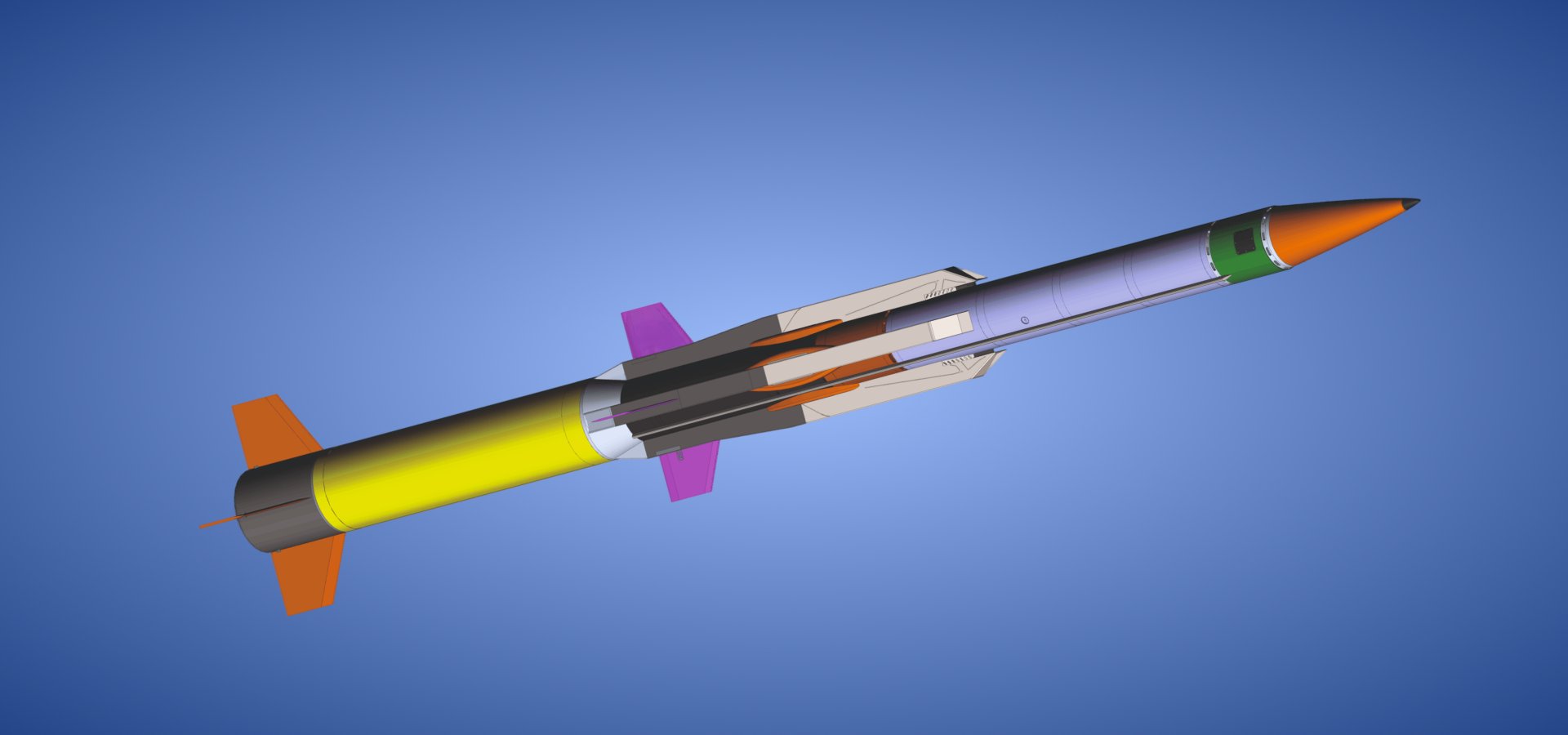Astra MK-3
| Name | Astra MK III |
|---|---|
| Image |  |
| Country of origin | India (DRDO/BDL) |
| Range | 190 km (Launched from 8 km altitude) 340 km (Launched from 20 km altitude) |
| Max altitude | 20 km |
| Length | 3.838 m |
| Diameter | 178 mm |
| Fin span | 200 mm |
| Mass | 220 kg |
| Flight Duration | Not known |
| Warhead | HE Pre Fragmented |
| Max Speed | Mach 4.0+ (Terminal phase) |
| Propulsion | Solid Fuel (Boron infused HTBP propellant) |
| Engine | Solid Fuel Ducted Ramjet |
| Warhead | 15 kg, high explosive pre-fragmented HMX/PU |
| Warhead yield | Not known |
| Detonation Mechanism | Not known |
| Guidance | Mid-course: Two way data-link, fibre optic ring laser gyroscope based inertial navigation system Terminal: Ku band AESA active radar seeker |
| Launch platform | Su-30 MKI, LCA-TEJAS, TEJAS MK1A |
| Service period | In development |
| Description | The Astra Mk 3 is a beyond-visual-range air-to-air missile currently under development by India’s Defence Research and Development Organisation (DRDO). It is envisioned as a further advancement upon the Astra Mk 1 and Mk 2 , incorporating improvements in range, seeker technology, and overall performance. While specific details remain classified, it is expected to feature enhanced capabilities against a wider range of aerial threats, including highly maneuverable fighter aircraft and unmanned aerial systems. The Astra Mk 3 is likely to integrate advanced technologies such as improved electronic countermeasures and a more sophisticated propulsion system. |
| Website | https://bdl-india.in/astra |
Disclaimer: This information is based on publicly available sources and should be considered for general knowledge purposes only.